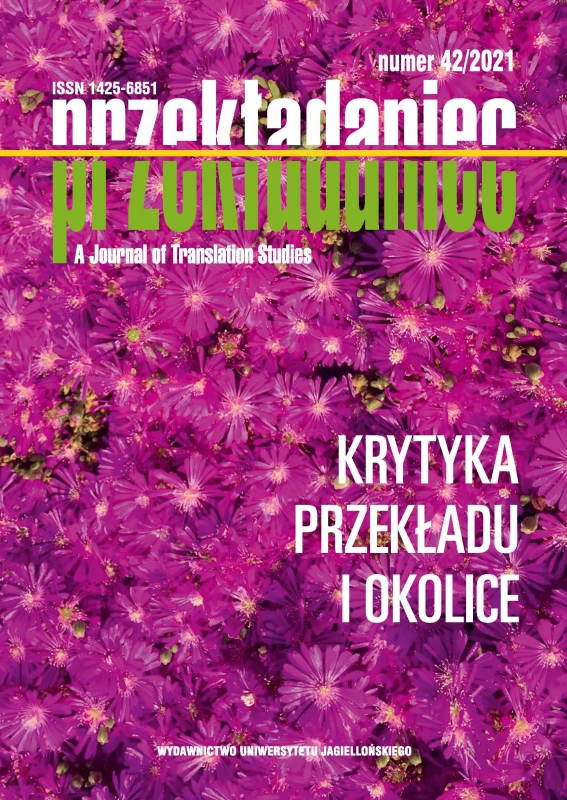Zemsta Trygława i Swaroga? Krytyka fanowska angielskiego tłumaczenia komiksu Kajko i Kokosz
The Revenge of Triglav and Svarog? Fan-Generated Translation Criticism of the English Version of the Comic Book Kajko i Kokosz
Author(s): Joanna Dybiec-GajerSubject(s): Language and Literature Studies, Translation Studies
Published by: Wydawnictwo Uniwersytetu Jagiellońskiego
Keywords: translation criticism; fan-generated translation criticism; translation of comics; Kayko and Kokosz; Flying School
Summary/Abstract: The article discusses the role of fan communities as critics of translated texts. It shows how fans’ active involvement as prosumers in the production of translational (mock) critical content can affect the promotion and distribution of the official, commercial translation. The case in point is a fan-generated and fan-mediated reception of the English rendition of an album from a classic Polish Kajko i Kokosz comic series. First published in 1975, Szkoła latania (Flying School) is part of Poland’s shared popcultural idiom, since recently also part of the primary school reading canon. Its first English translation (2018) made available in a pre-release to the comic’s fans led to a number of controversies, ranging from humorous internet-mediated discussions of an editing mistake to an open petition to the publisher to preserve in translation the comic’s cultural specificity. The article sets off by discussing the profile of the translation critic emerging from leading models of translation criticism to move on to sketch new developments and the role of fandom and fan-generated criticism. Arguing that currently translations of speculative fiction into and out of English in the Polish context can be considered vulnerable translations, prone to fans’ critical scrutiny, it focuses on Flying School and its fan reception which lead to the prolonged postponement of the publication of the official translation. The article also provides an analysis of the pre-release commercial translation to provide background for the fan criticism. It shows the clash of the translator’s consistent domesticating strategy with fans’ expectations of an exoticizing translation, preserving the Slavic character of the series which raises the question of the translation brief and publisher-translator relationship.
Journal: Przekładaniec.
- Issue Year: 2021
- Issue No: 42
- Page Range: 116-143
- Page Count: 28
- Language: Polish

